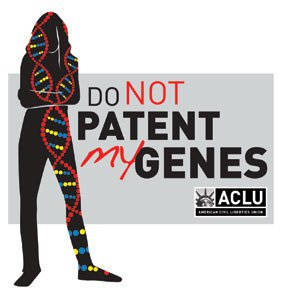On June 13, 2013, in the case of the Association for Molecular Pathology v. Myriad Genetics, Inc., the Supreme Court of the United States ruled that human genes cannot be patented in the U.S. because DNA is a “product of nature.” The Court decided that because nothing new is created when discovering a gene, there is no intellectual property to protect, so patents cannot be granted. Prior to this ruling, more than 4,300 human genes were patented. The Supreme Court’s decision invalidated those gene patents, making the genes accessible for research and for commercial genetic testing.
Can genes be patented?: MedlinePlus Genetics
What has changed in the genomics world since this landmark decision?
- Within five hours of the ruling, laboratories began offering genetic testing at half the $4,400 price Myriad had been charging. (Myriad Genetics was the commercial lab that held the patent and also the defendant in the Supreme Court case.)
- Multiple laboratories began offering BRCA1 and BRCA2 testing as part of large cancer panels that included many other cancer genes. This pushed the entire field of genetics into a new era of panel testing. It also helped detect mutations not previously tested for and will contribute to our understanding of the risk associated with each gene.
- All new laboratories began sharing their data in public databases.
- The percentage of results with unknown meanings (variants of uncertain significance or VUS) in public databases decreased significantly, which improved result interpretation.
- Some insurance companies began favoring laboratories that shared data.
- The cost of cancer genetic testing dropped to a low of $249 at one lab. As a result, this made self-payment a more feasible option for consumers.
- The criteria for cancer genetic testing widened.
Sandra Park, Senior Staff Attorney at the American Civil Liberties Union (ACLU), on the impact of banning gene patents:

“The verdict removed huge barriers to patient access to genetic testing, the development of comprehensive new tests, and genetic research. As genetic testing becomes more commonplace, it is crucial to empower patients to make the best decisions for themselves and their families and to shape the course of genetic research. On the legal and policy front, the ACLU commits to advancing genetic privacy rights for patients. That includes the right to obtain ones own genetic information after testing and protection from genetic discrimination.”
The Supreme Court ruling came shortly after Angelina Jolie disclosed her BRCA1 mutation and decision to preventively remove both breasts. The combined news coverage from Jolie and the Supreme Court case increased knowledge about and interest in cancer genetic testing.
Ellen Matloff, President and CEO of My Gene Counsel and plaintiff in the case, on the impact of banning gene patents and Angelina Jolie’s announcement:
“The increased volume of patients having testing and the relatively small number of cancer genetic counselors nationwide led many providers to take on the role of ordering and interpreting genetic tests. This is occurring while result interpretation is growing more and more complex because more genes are added to panels. Concurrently, many cases of result misinterpretation have been reported, resulting in unnecessary surgeries and/or advanced cancer diagnoses for patients and their families.”
Widespread result misinterpretation has underlined the need for accurate genetic counseling as part of the genetic testing process. This need for accurate genetic counseling will continue to intensify as mutations and VUS in rare genes are identified and as we find more common mutations in families that do not have the expected cancer histories seen in more traditional cancer families.
For these reasons, Matloff created My Gene Counsel, a digital, scalable genetic counseling solution that will help to solve this problem. Health systems and precision medicine partners use My Gene Counsel’s solution in parallel with genetic testing to help patients and providers use results accurately and effectively.

